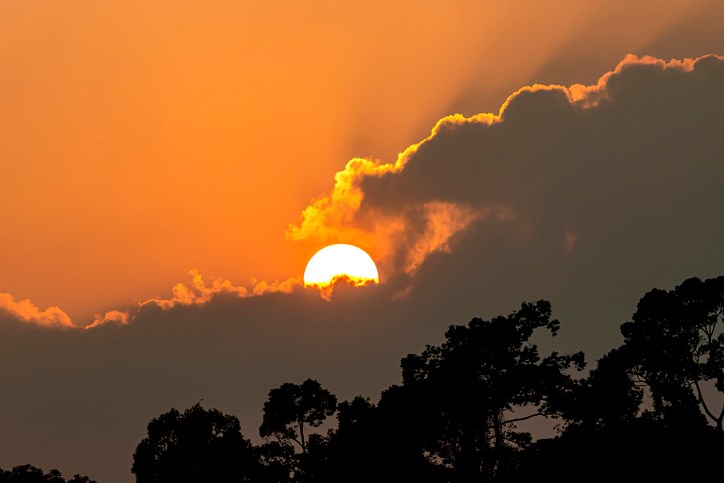Canada’s judicial system is not prepared to deal with the fallout from climate change.
That’s the message a group of over 100 lawyers sent to Ottawa Thursday in an open letter urging Prime Minister Justin Trudeau and the Ministry of Justice and the Attorney General to carry out a sweeping review of how climate change is undermining everything from Canadians fundamental rights and freedoms to the safety of prisoners during extreme weather events.
Several prominent B.C. legal experts have already signed the letter, including former Attorney General of British Columbia Andrew Petter.
“This crisis is accelerating and it’s just essential to highlight the relationship between climate impacts and justice in Canada,” said Aladdin Tingling Diakun, a Toronto-based corporate lawyer and member of the group Lawyers for Climate Justice.
“I don’t think we know what the vulnerabilities are right now.”
A spokesperson for the Department of Justice told Glacier Media it is aware of the letter and is currently reviewing its recommendations.
“It would be premature to comment further at this point, given the scope of the calls for action,” said DOJ spokesperson Ian McLeod in an email.
Diakun points to other jurisdictions like Texas, where a climate-driven cold spell paralyzed the state last winter. Prisoners were left stranded in desperate conditions, with overflowing toilets, no blankets and freezing temperatures.
If such a disaster were to hit a portion of Canada's federal prison system, the effects on its guards and thousands of inmates wouldn't be suffered equally.
The past decade has seen a steady rise in the number of Indigenous people in prisons, despite efforts to curb their over-representation.
By early 2020, 30 per cent of all federal prisoners were Indigenous, according to the Office of the Correctional Investigator. That’s an increase of over 43 per cent since 2010 at a time the non-Indigenous incarcerated population declined by nearly 14 per cent.
“If we’re serious about addressing inequality, addressing systemic racism, we have to get serious about climate change,” said Diakun.
The risks to the judicial system extend outside the walls of federal prisons, according to the group of lawyers.
In their letter, the over 100 signatories call on Ottawa to review every existing federal statute currently on the books — from banking to insurance — as well as all future laws to make sure they aren’t contributing to inequality in an era of climate change.
The letter cites a conclusion from the United Nations Office of the High Commissioner for Human Rights that climate destabilization “threatens the enjoyment of all human rights, including rights to health, water, food, housing, self-determination, and life itself.”
“This threat is increasing exponentially as greenhouse gas emissions heat the planet more each year. We need look no further than the 570 lives lost to extreme heat in British Columbia earlier this summer to see this growing threat at work,” reads the letter.
Last month, an investigation by Glacier Media found the heat wave sent more people to emergency rooms in poorer neighbourhoods in Vancouver, where Indigenous and other people of colour are over-represented. In neighbourhoods like the Downtown Eastside, where trees are scarce, temperatures and visits to hospitals soared.
The letter calls on the prime minister and the Minister of Justice and the Attorney General to track and mitigate how climate change threatens Canadians’ fundamental rights and freedoms. But also how disruption of the global climate makes inequality, racism and other systemic injustices in Canada, worse. In particular, the lawyers say they are worried about Aboriginal rights under Section 35 of the constitution, where Diakun said climate change threatens access to winter roads and title lands, for example.
“Climate change is an everything issue which means it touches all areas of law,” said Diakun.
“If we just wait and see and cross our fingers, we are really taking risks.”
Stefan Labbé is a solutions journalist. That means he covers how people are responding to problems linked to climate change — from housing to energy and everything in between. Have a story idea? Get in touch. Email [email protected].
Editor's Note: This story has been updated with a comment from the Department of Justice.




